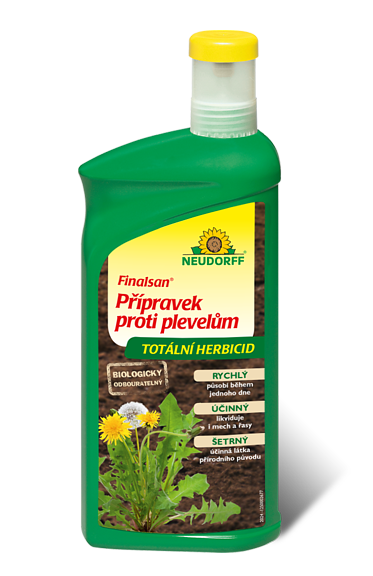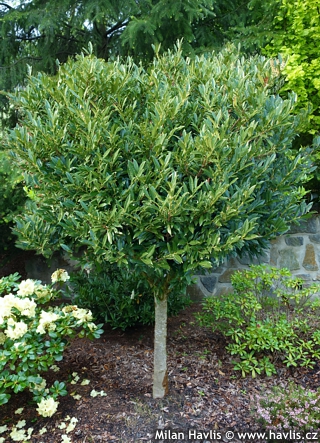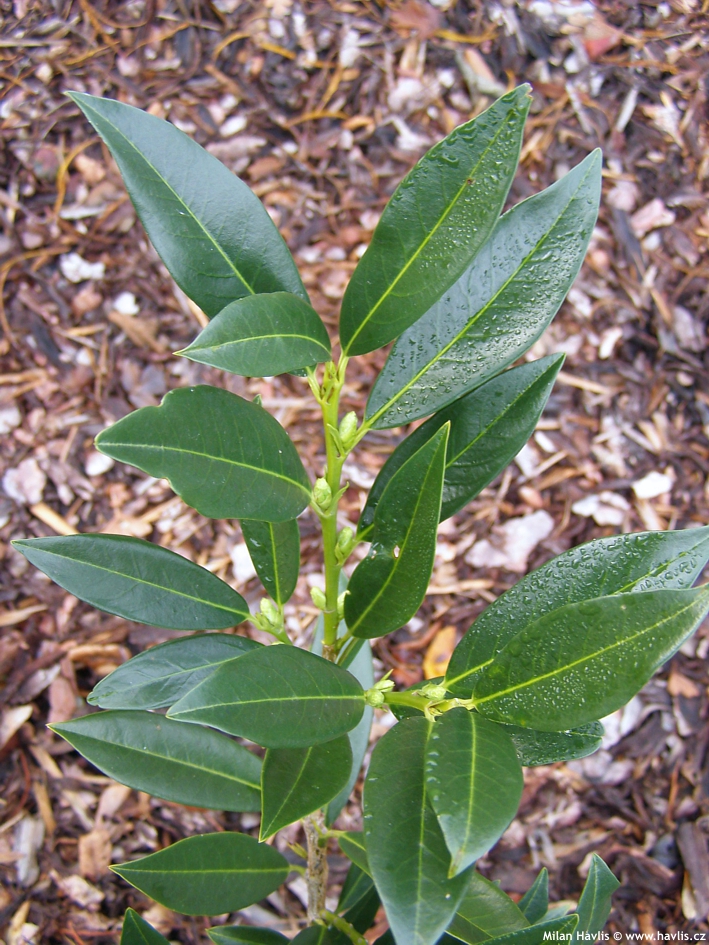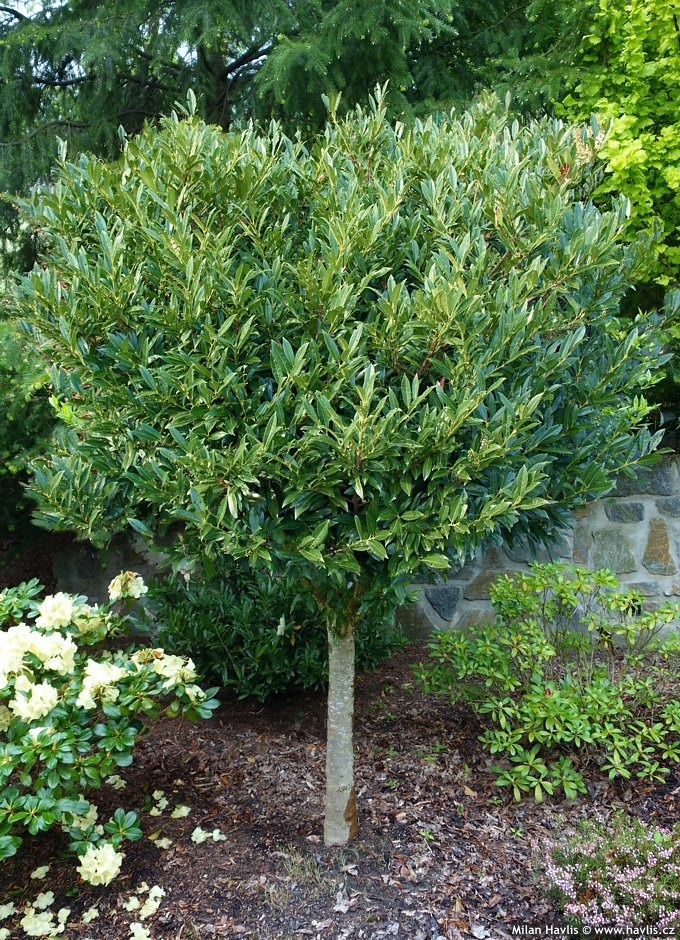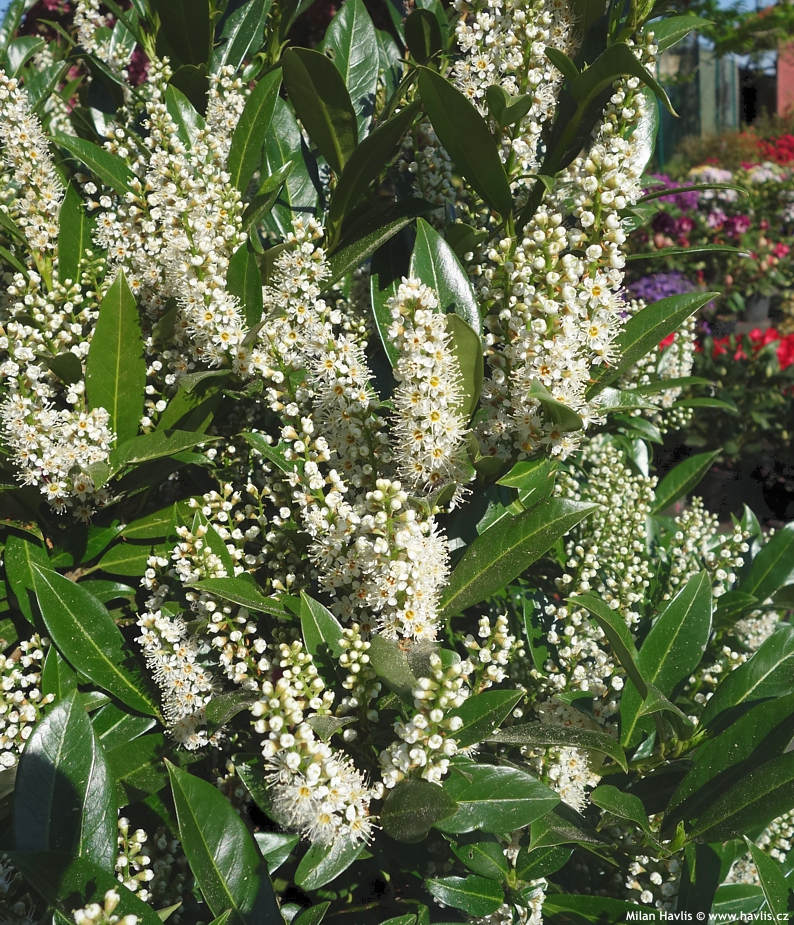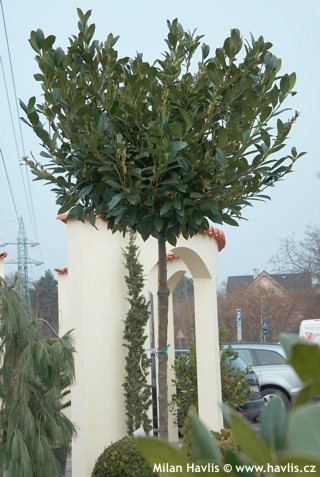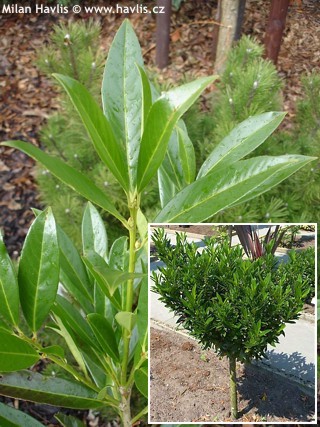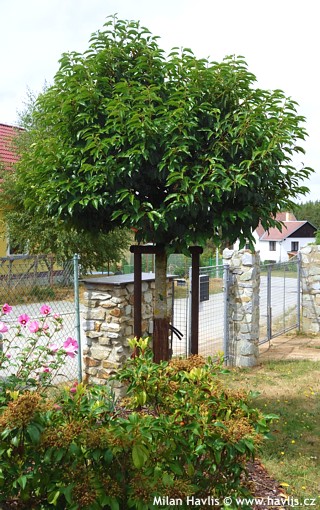Prunus laurocerasus 'OTTO LUYKEN' Cherry laurel, English laurel - STANDARD TREE
Prunus
The genus Prunus is quite extensive and, above all, remarkably diverse – it includes around 350 different species, some of which you would hardly place in the same group at first glance. Its representatives occur from Asia through Europe and North Africa to North America. The genus comprises trees and shrubs valued mainly for their abundant and attractive flowering, as well as species with delicious edible fruits, and in this particular case an evergreen species whose persistent foliage becomes especially important during the dormant season, when most other woody plants are leafless. This species is known as cherry laurel (Prunus laurocerasus) and originates from regions around the Black Sea, the Caucasus, and northern Turkey, where it grows in submontane forests and on moist, shaded slopes. Its glossy, leathery leaves resemble those of true laurel, and this similarity that gave rise to its name – lauro‑cerasus, meaning “laurel cherry.” It reached Europe as early as the 16th century and, thanks to its frost hardiness, is today one of the most important evergreen woody plants even in Central European climate.
Cherry laurel was scientifically described in 1753 by Carl Linnaeus in his famous work Species Plantarum, where it received its current botanical name Prunus laurocerasus. Its cultivation and use, however, are documented already in antiquity – it is mentioned by Theophrastus, Dioscorides, and Pliny, who described it as a laurel‑like plant and drew attention to its unusual properties. The leaves contain cyanogenic glycosides, primarily prunasin and, to a lesser extent, amygdalin, from which hydrocyanic acid was released when properly processed. These substances formed the basis of a distillate known as aqua laurocerasi, which was used with due medical caution as a sedative.
Otto Luyken is one of the hardiest and now truly classic low‑growing cultivars of cherry laurel. It is perhaps the only one to have reliably survived temperatures as low as –29 °C without a single leaf showing frost damage. Growth is slow and compact, with narrow, elongated, lance‑shaped evergreen leaves measuring approximately 8–10 cm in length. The foliage is deep green, highly glossy, and characteristically angled upward, giving the plant a neat and composed appearance.
In spring, usually from April to May, mature plants produce upright racemes composed of small, creamy white flowers with an intense, sweet fragrance. After flowering, small, glossy, dark purple to black fruits develop and are eagerly taken by birds. Numerous tests regarding fruit toxicity (source: Plants For A Future) have shown that any potential risk lies only in the consumption of leaves and the seeds of unripe fruits; fully coloured or fallen fruits have caused no harm even to children. Otto Luyken also very often flowers again toward the end of summer.
The cultivar originated in Germany in the second half of the 20th century as a deliberate horticultural selection aimed at compact growth and abundant flowering. It is named in honour of Otto Luyken, a German gardener and nurseryman who made a significant contribution to the breeding and dissemination of ornamental woody plants in post‑war Europe. Thanks to its reliability, low maintenance requirements, exceptional frost hardiness, and elegant appearance, this cherry laurel quickly gained popularity not only in European gardens but also overseas, where it is still regarded as one of the finest low‑growing cherry laurel cultivars.
Owing to its naturally compact, slightly spreading habit, Otto Luyken is very often grown in the form of a low, evergreen standard tree with a dense, regular crown. This form is ideal where an evergreen presence is desired while keeping the ground level open. The crown sits higher than that of shrub forms and therefore works well for partially screening views from neighbouring windows or terraces. The final size of the tree depends on the height of the grafted stem; to the stem height, approximately 1.5 to 2 metres should be added to estimate the eventual height and width of the crown. As with all standard trees, young plants should be secured with a wind support system for the first two to three years after planting, until they are fully established and resistant to wind damage.
Cherry laurels require moist but well‑drained soil, ideally acidic to neutral and rich in nutrients. They do not tolerate compacted, heavy clay, muddy, or permanently waterlogged soils. They are sensitive to lime in the soil, which most commonly manifests as chlorosis – the leaves lose their green colour and the vein pattern becomes pronounced. Similar symptoms may also occur in cases of nutrient deficiency. In both situations, the application of magnesium sulphate (Epsom salt), organic fertilisers, or adjustment of soil pH towards a more acidic reaction is beneficial. They tolerate pruning of any intensity and respond particularly well to rejuvenation pruning into old wood, from which they readily regenerate. The best time for pruning is in spring after the risk of frost has passed; shaping cuts are carried out in mid‑summer. Because they retain their leaves year‑round – even in winter – and continuously transpire water, they require an adequate supply of moisture. Until a sufficiently deep root system develops, it is advisable to water them at least once a month during dry winters to prevent dehydration and subsequent leaf scorch caused by strong winter sun. To retain moisture and protect against temperature fluctuations, year‑round mulching is strongly recommended. Otto Luyken is very hardy and withstands frosts to about -29°C (USDA zone 5), and is also suitable for year-round cultivation in large outdoor planters (ideally min. 80x80x80 cm).
Last update 26-02-2020; 22-12-2025
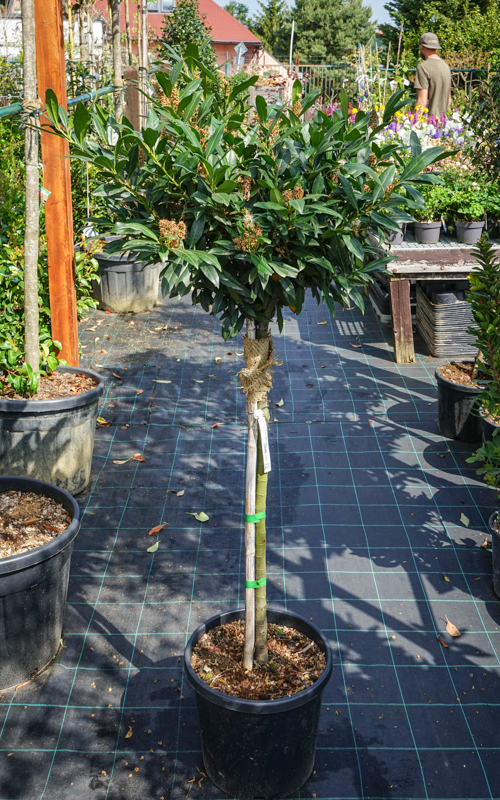
2 422,5 Kč
Goods are shipped all over Europe. For Russia and U.K. and for further details please read about SHIPPING OPTIONS HERE.
Are you interested in a serious discount for orders NOV-FEB? Check your options here.
THE PRICES INCLUDE VAT of 15%. For quick conversion you can use 1 CZK = approx. 0.04 EUR
- STANDARD QUALITY - Plants of this group are 1st class quality with number of branches and overall density adequate to their size and age, considering they were container grown.
- DE LUXE QUALITY - This label guarantees a luxurious quality of manually selected plants that, compared to their height and age, are exceptionally dense and beautiful.
- EXTRA - These plants are usually mature and bigger specimens with exceptional overall appearance.
- STANDARD (as described in the plant form) means a tree with a trunk of 190-210 cm and a crown at the top, unless specified differently. The commercial size for trees is their girth measured in the height of 1m from ground.
- HOBBY - These plants are of the same quality as our standard-quality plants but younger and therefore cheaper.
- SHRUB - a woody plant with branches growing bushy from the ground level.
- HALF-STANDARD or MINI-STANDARD - a small tree with shorter trunk, its size is usually specified.
- FEATHERED - These are trees with branches growing already from the base of the trunk and up along the stem.
- GRASSES and PERENNIALS - Sizes given usually read the diameter of the pot or the clump, as specified.






























